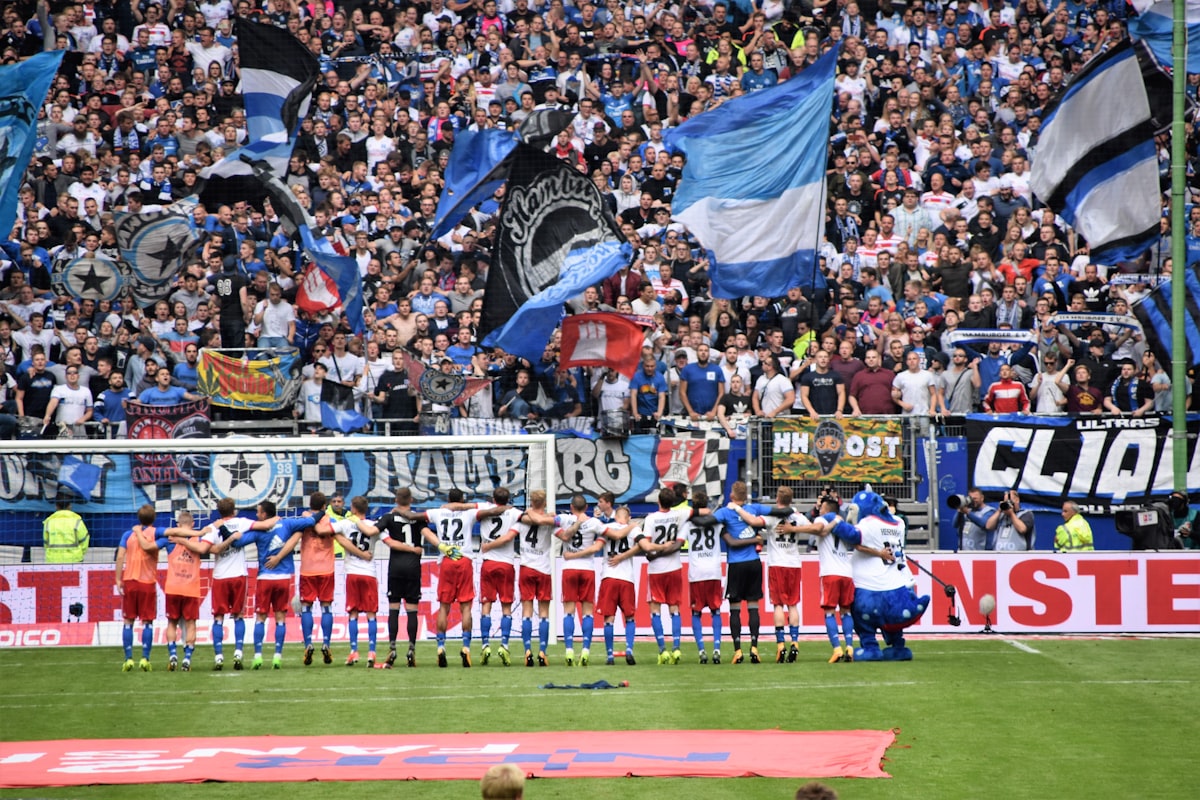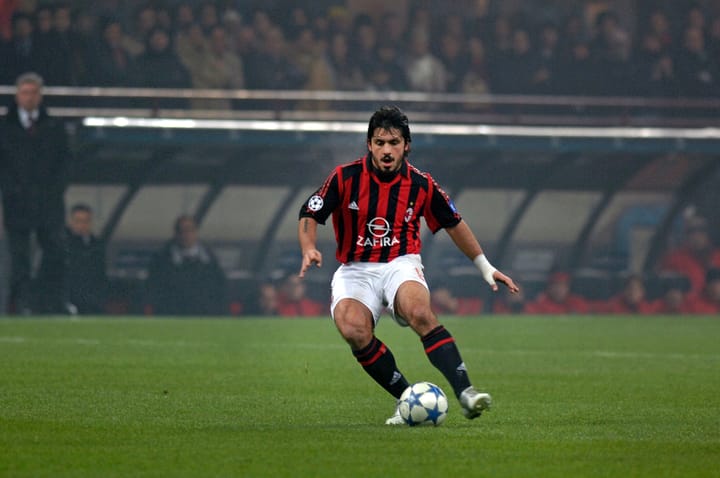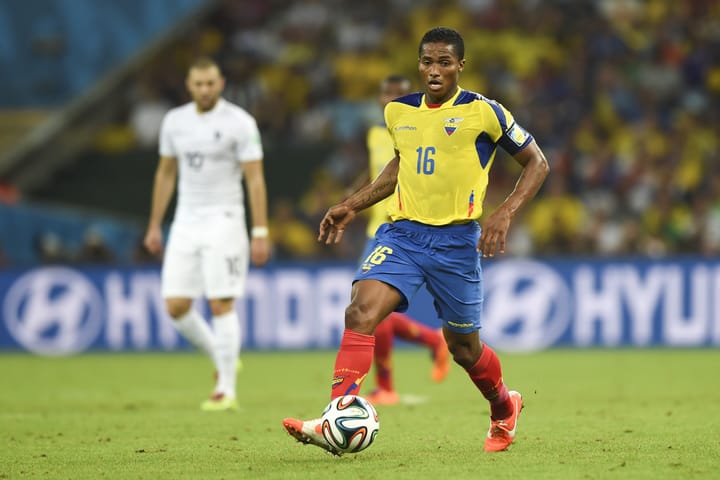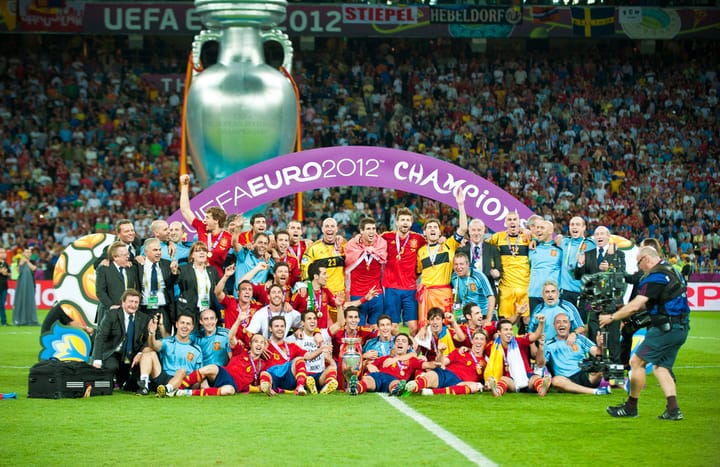Once Kings, Now Underdogs: the One-Time Champions League Winners Who Will Probably Never Win Again (1/2)
The UEFA Champions League is regarded as the most prestigious trophy in club soccer. In these two articles, we highlight the nine clubs that won it only once and probably will never win it again.

The UEFA Champions League (or Europa Cup 1, as it was called before 1993) is the ultimate pinnacle of club soccer, where the richest and most aspiring teams from Europe compete for the highest honor. Over the years, there have been several underdogs who defied the odds and emerged as champions, capturing the hearts of soccer fans worldwide. In this and the following article, we will take a closer look at the one-time winners of this legendary trophy who created history and most likely will never win it again.
Celtic (1967)
In 1967, Celtic Football Club became the first British team to win the European Cup 1, which is now known as the UEFA Champions League. This historic achievement took place on May 25, 1967, in the final held at the Estádio Nacional in Lisbon, Portugal.
Prior to this win, no Scottish or British club had ever won the trophy. Celtic's journey to the final saw them defeat teams like Vojvodina, Dukla Prague, and French champions Nantes.
All of the players on the Jock Stein-led team were born within 30 miles of their home stadium, Celtic Park. This group of players later came to be known as the "Lisbon Lions." Some of the prominent figures in the team were captain Billy McNeill, Bobby Lennox, Jimmy Johnstone, and goalkeeper Ronnie Simpson.
In the final, Celtic faced the formidable Inter Milan, a team renowned for its defensive “Catenaccio” style under manager Helenio Herrera. Inter was the favorite, having won the European Cup twice before, in 1964 and 1965.
Celtic displayed an attacking style of soccer, dominating possession and constantly putting pressure on the Italian side's defense. Despite their aggressive start, Celtic went 1-0 down early in the match due to a penalty scored by Sandro Mazzola in the 7th minute. Undeterred, Celtic continued their attacking play and finally got their reward in the 63rd minute when Tommy Gemmell scored the equalizer with a powerful long-range shot. With momentum on their side, Celtic pushed for the winner, which arrived in the 84th minute from Stevie Chalmers, securing a historic 2-1 victory for Celtic.
Celtic’s win was not just a triumph for the club but also a victory for attacking soccer, as it demonstrated that offensive play could overcome even the most disciplined defensive strategies. Jock Stein, the Celtic manager, was lauded for his tactical acumen and the positive, forward-thinking style of play he instilled in his team.
The Lisbon Lions became national heroes in Scotland and are still celebrated to this day as legends of the club. Their victory in 1967 marked the peak of one of the most successful eras in Celtic's history. The triumph remains a proud moment in Celtic's history, showcasing their dominance in European soccer at the time.
Feyenoord (1970)
In 1970, Feyenoord Rotterdam clinched their first European Cup, becoming the first Dutch team to win the prestigious tournament. This monumental achievement occurred on May 6, 1970, in the final held at the San Siro stadium in Milan, Italy.
Before 1970, no Dutch team had triumphed in the European Cup. Feyenoord's road to the final was marked by victories over significant teams, including AC Milan and Legia Warsaw.
The Feyenoord team, under the direction of illustrious Austrian manager Ernest Happel, was a mix of seasoned players and young talents. Some of the standout figures were Rinus Israël, Wim Jansen, and the Swedish forward Ove Kindvall, whose contributions were pivotal throughout the campaign.
In the final, they met the Scottish champions Celtic, a team that had won the European Cup just three years earlier, in 1967. It was a clash of titans, with both teams having demonstrated exceptional soccer in the run-up to the final.
The match turned out to be a tightly contested encounter. Tommy Gemmell, who had scored for Celtic in the 1967 final, put Celtic ahead in the 30th minute with a powerful strike. However, Feyenoord quickly responded with an equalizer just two minutes later, through Rinus Israël. The teams were locked at 1-1 at the end of regular time, forcing the game into extra time. It was during the extra time, in the 117th minute, that Ove Kindvall scored the decisive goal, showcasing his goal-poaching prowess by flicking a low shot over the Celtic goalkeeper. This goal sealed a 2-1 victory for Feyenoord, marking a historic moment in Dutch soccer.
Feyenoord's victory ushered in a golden era of Dutch soccer, both at the club and international levels. Their victory was seen as a precursor to the “Total Football” philosophy that would soon be synonymous with Dutch soccer, characterized by fluid positioning and high technical skill. Manager Ernest Happel was praised for his strategic insights and leadership, guiding the team to victory against a seasoned and experienced Celtic side.
Aston Villa (1982)
In 1982, Aston Villa secured its place in soccer history by winning the European Cup, the most prestigious club competition in European soccer.
In the lead-up to the 1981–82 season, Aston Villa was coming off a League Championship victory but was facing several challenges, including managerial changes, with Tony Barton taking over from Ron Saunders mid-season. Despite the turmoil, the team showcased remarkable spirit and resilience throughout their European Cup campaign.
The team was a well-blended mixture of experienced veterans and young talents. The standout figures included goalkeeper Nigel Spink, who played a critical role in the final despite being a substitute for most of the season, and captain Dennis Mortimer, who led the team with great leadership on and off the field.
Aston Villa's journey to the final was nothing short of remarkable. They faced and defeated strong teams such as Dynamo Berlin, Dynamo Kiev, and Anderlecht in the knockout rounds, showcasing tactical discipline and a solid defensive setup, conceding only two goals in the entire campaign leading up to the final.
The final was held at De Kuip Stadium in Rotterdam, Netherlands, on May 26, 1982. Aston Villa faced a star-studded Bayern Munich team that featured legendary figures like Paul Breitner and Karl-Heinz Rummenigge. Despite being underdogs, Aston Villa showed no signs of intimidation.
A significant moment in the match came early when Aston Villa's first-choice goalkeeper, Jimmy Rimmer, was forced to leave the field due to a shoulder injury in the 9th minute, being replaced by the relatively inexperienced Nigel Spink. Spink rose to the occasion, pulling off a series of remarkable saves to keep Villa in the game. The deadlock was broken in the 67th minute when Peter Withe, a forward for Aston Villa, scored from close range, converting a Tony Morley cross to find the back of the net. Aston Villa showcased a superb defensive performance for the remainder of the match, holding off continuous attacks from the Bayern side to secure a historic 1-0 victory.
The victory was an enormous achievement for Aston Villa, solidifying their status as one of the English soccer giants at the time. Tony Barton, the manager, was hailed for steering the team to victory amid the challenges they faced that season. The players became instant legends, with Nigel Spink's performance being particularly praised given the circumstances of his entry into the match.
Hamburger SV (1983)
In 1983, Hamburger SV, commonly known as HSV, clinched the most prestigious trophy in European club soccer—tthe European Cup, now known as the UEFA Champions League.
The early 1980s were a golden era for Hamburger SV; the club was enjoying a period of domestic and international success. Managed by Ernst Happel, who had also guided Feyenoord to European glory in 1970, the team was packed with talent and had a solid foundation to contend on all fronts.
The 1982–1983 team was graced by a blend of seasoned and budding talents. The team had prominent figures such as the prolific forward Horst Hrubesch, the skilled midfielder Felix Magath, and the veteran defender Manfred Kaltz. The team was known for its tactical discipline and potent offensive capabilities.
En route to the final, HSV showed remarkable soccer, overcoming challenging opponents like Olympiacos, Dinamo Moscow, and Real Sociedad in the knockout rounds. Their journey to the final was marked by solid team performances and strategic mastery from their experienced coach, Ernst Happel.
The pinnacle event took place at the legendary Olympic Stadium in Athens, Greece, on May 25, 1983. Hamburger SV faced a strong Juventus side that boasted world-class talents such as Michel Platini, Dino Zoff, and Zbigniew Boniek, among others.
HSV demonstrated composure and tactical astuteness throughout the final match. The critical moment came in the 8th minute when Felix Magath unleashed a long-range effort that found the back of the net, giving HSV a crucial lead. The rest of the game saw HSV showcasing a resilient defensive performance, successfully thwarting numerous attacks from the Juventus side to hold onto their slender lead. Their defense was uncompromising, displaying a perfect blend of tactical awareness and physicality to keep the Juventus attack at bay.
HSV’s 1-0 victory over Juventus was met with euphoria back in Hamburg and across Germany. It marked the pinnacle of a golden era for the club, as they showed to Europe the skill and tactical finesse German soccer had to offer. Ernst Happel was once again hailed as a managerial genius, becoming the first person to win the European Cup with two different clubs as a manager.




